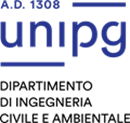Study-unit ENERGY SYSTEMS E THEIR ENVIRONMENTAL SUSTAINABILITY
| Course name | Environmental engineering |
|---|---|
| Study-unit Code | A002617 |
| Curriculum | Ambiente e energia |
| Lecturer | Gianni Bidini |
| Lecturers |
|
| Hours |
|
| CFU | 7 |
| Course Regulation | Coorte 2022 |
| Supplied | 2022/23 |
| Supplied other course regulation | |
| Learning activities | Affine/integrativa |
| Area | Attività formative affini o integrative |
| Sector | ING-IND/09 |
| Type of study-unit | Obbligatorio (Required) |
| Type of learning activities | Attività formativa monodisciplinare |
| Language of instruction | Italian |
| Contents | Plants with steam turbine Plants with gas turbine Internal combustion engines Cogeneration Electric and thermal cogeneration Combined gas-steam cycles: recovery boilers Cogeneration systems with gas turbine, steam turbine, internal combustion engine, combined group, Cheng cycle Alternative energy Geothermal energy Fuel cells Energy storage smart grid |
| Reference texts | G. Bidini Macchine 2 Macchine volumetriche, Il Formichiere 2018 G. Bidini Macchine 3 Sistemi energetici, Il Formichiere 2018 G. Bidini Macchine 4 Impianti idroelettrici, cogenerazione e cicli combinati, Il Formichiere 2018 |
| Educational objectives | Teaching represents the first course of systems and components of energy systems The main objective of the course is to provide students with the basics for design analysis and verification of the functioning of energy components and systems The main knowledge acquired will be Plants with steam turbine Description of the elementary cycle. Improvements to the elementary circuit: repeated overheating, thermal regeneration. Description of the steam system: fume and steam water circuit. Emissions from steam plants Plants with gas turbine Description of the elementary cycle. Improvements to the simple cycle: thermal regeneration, inter-refrigerated compression, post-combustion, injection of water and / or steam. Polluting emissions from gas turbine systems Internal combustion engines Introduction to internal combustion engines, thermodynamic cycles, real cycles; phase distribution diagram; expression of the power of an engine; 2-stroke engine; injection systems. Analysis of combustion and polluting emissions Cogeneration Electric and thermal cogeneration Combined gas-steam cycles: recovery boilers Cogeneration systems with gas turbine, steam turbine, internal combustion engine, combined group, Cheng cycle Alternative energy Geothermal power plant Fuel cells Energy storage, hydrogen Introduction to smart grid generation systems The main skills (ie the ability to apply the acquired knowledge) will be: analyze an ignition or positive ignition engine cycle to dimension and verify the main parameters of a steam turbine system under various operating conditions analyze the functioning of the most common cogeneration systems to size and verify the various types of hydroelectric energy production systems analyze and compare various accumulation systems analyze the operation of fuel cells |
| Prerequisites | Topics covered in the module require you to have the ability to solve simple mass balance and energy and the ability to solve simple integrals and derivatives |
| Teaching methods | The course is organized as follows Lectures on all the topics of the course |
| Other information | Frequency is recommended |
| Learning verification modality | The exam includes an oral and / or written test. The oral exam in a discussion lasting about 30 minutes aimed at ascertaining the level of knowledge and the understanding reached by the student on the theoretical and methodological implications listed in the program (internal combustion engines, turbo machinery, energy systems). The oral exam will also test the ability of communication with the student of language and autonomous organization of the exposure on the same topics in theoretical content. The written Consite in the solution of two / three problems in computational nature and / or size of the plant and / or multiple-choice questions and / or open technical content and methodology of the program. The test has a duration of not more than 3 hours and is designed to test the ability to correctly apply the theoretical knowledge, the understanding of the issues proposed and the ability to communicate in a written The evidence as a whole allows us to ensure both the ability of knowledge and understanding, and the ability to apply the acquired skills and the ability to display, and the ability di apprendere and process solutions for independent judgment |
| Extended program | Plants with steam turbine Description of the elementary cycle. Improvements to the elementary circuit: repeated overheating, thermal regeneration. Description of the steam system: fume and steam water circuit. Emissions from steam plants Plants with gas turbine Description of the elementary cycle. Improvements to the simple cycle: thermal regeneration, inter-refrigerated compression, post-combustion, injection of water and / or steam. Polluting emissions from gas turbine systems Internal combustion engines Introduction to internal combustion engines, thermodynamic cycles, real cycles; phase distribution diagram; expression of the power of an engine; 2-stroke engine; injection systems. Analysis of combustion and polluting emissions Cogeneration Electric and thermal cogeneration Combined gas-steam cycles: recovery boilers Cogeneration systems with gas turbine, steam turbine, internal combustion engine, combined group, Cheng cycle Alternative energy geothermal energy, Fuel cells Energy storage Smart grid |


